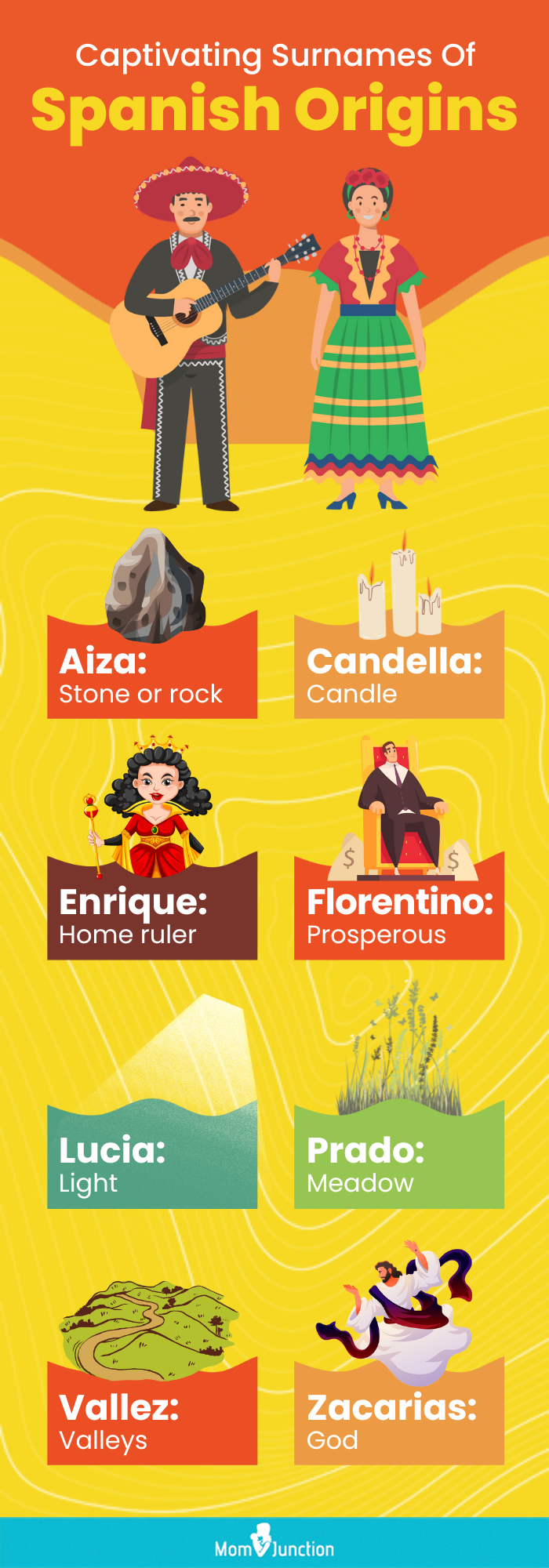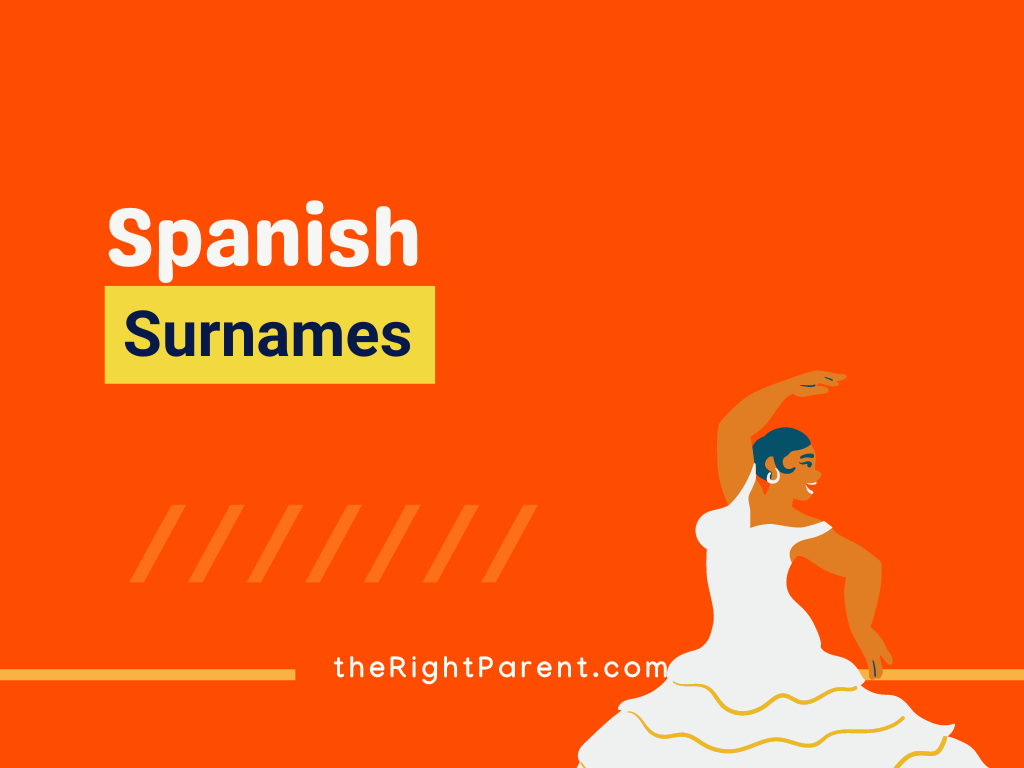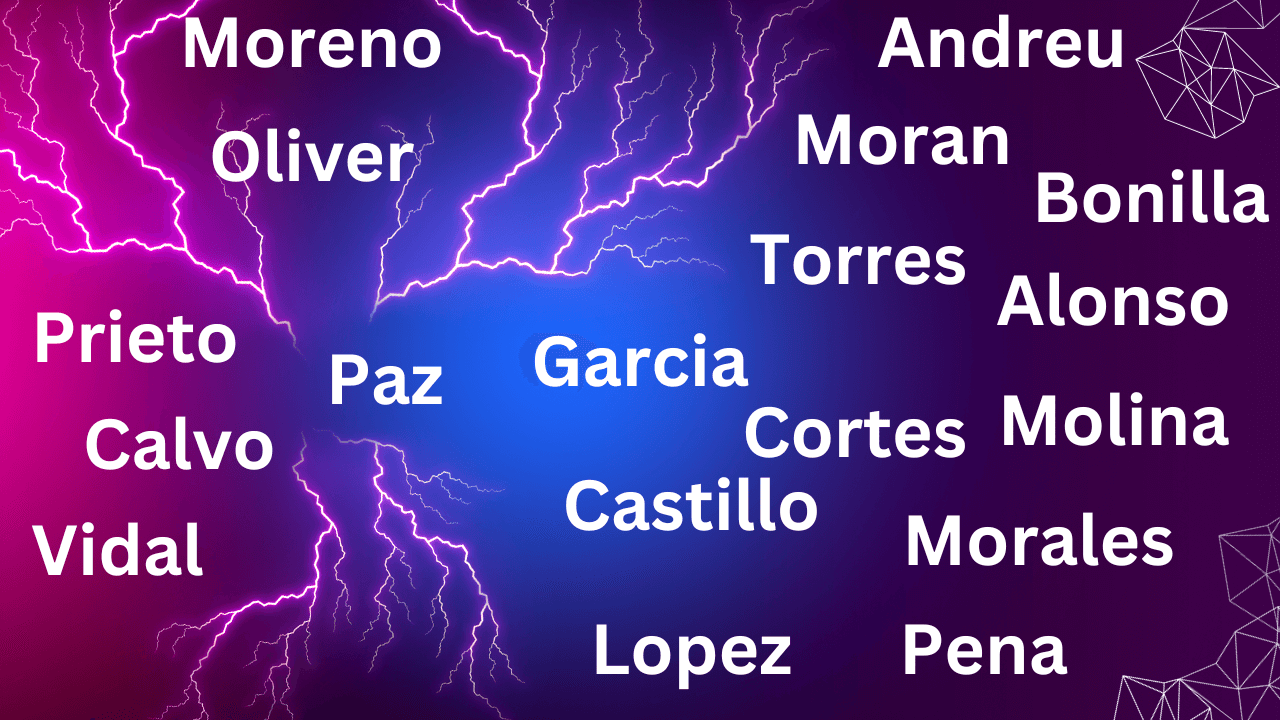Have you ever stumbled upon a Spanish surname that made you stop and wonder? Names like Aparicio, Zorrilla, or even something as quirky as Zapatero can leave you scratching your head. Unusual Spanish surnames carry a rich cultural and historical significance that often gets overlooked. But hey, these names aren’t just random strings of letters—they’re like little time capsules, holding stories from centuries past.
Spanish surnames have a way of capturing the essence of a person’s heritage, ancestry, and sometimes even their family’s profession or place of origin. Whether it’s a name inspired by nature, geography, or an ancestor’s occupation, these unusual surnames are more than just identifiers. They’re a window into the vibrant tapestry of Spanish culture.
So, why should you care about unusual Spanish surnames? Well, aside from being super interesting, they can also help you connect with your roots if you’re of Spanish descent. And let’s be real, who doesn’t love a good story behind a name? In this article, we’ll dive deep into the world of these unique surnames, exploring their origins, meanings, and cultural significance. Buckle up—it’s going to be a wild ride!
Read also:Benoicirct Maupu The Rising Star Whorsquos Turning Heads In The Football World
Here’s a quick glance at what we’ll cover:
- The History of Spanish Surnames
- Unusual Spanish Surnames You’ve Probably Never Heard Of
- Where Do These Names Come From?
- What Do These Names Mean?
- Famous People with Unusual Spanish Surnames
- How to Use These Names in Modern Times
- The Cultural Significance of Unusual Surnames
- Are These Names Still Popular Today?
- Tracing Your Roots Through Unusual Surnames
- Wrapping It Up
The History of Spanish Surnames
Let’s rewind a bit and talk about how Spanish surnames came to be. Back in the day, people didn’t really need last names because communities were small, and everyone knew each other. But as populations grew, so did the need for distinguishing between individuals with the same first name. That’s where surnames stepped in.
Spanish surnames can be traced back to the Middle Ages, and they often reflect the social structure of the time. For example, many names were derived from occupations, like “Carpintero” (carpenter) or “Herrero” (blacksmith). Others were based on physical characteristics, like “Gordo” (fat) or “Pequeño” (small). And then there were those that came from places, like “Madrid” or “Valencia.”
How Did Unusual Surnames Emerge?
Now, here’s where things get interesting. Not all surnames followed the standard rules. Some were created out of sheer creativity or even humor. Imagine being named “Vaca” (cow) or “Pez” (fish). These names might sound funny today, but back then, they probably had a deeper meaning. Maybe the family was known for raising cattle or fishing—it’s all about context.
And let’s not forget the influence of other cultures. Spain has a rich history of invasions and migrations, so it’s no surprise that some surnames have Arabic, Roman, or Celtic roots. This melting pot of influences makes the world of Spanish surnames even more fascinating.
Unusual Spanish Surnames You’ve Probably Never Heard Of
Alright, let’s get to the good stuff. Here’s a list of some of the most unusual Spanish surnames that will make you do a double-take:
Read also:Kristen Scott Basketball Wives Husband The Untold Story You Need To Know
- Alcaide: This name comes from the Arabic word for “governor” or “custodian.” It’s a nod to Spain’s Moorish past.
- Chinchilla: No, this isn’t about the cute little rodent. This surname actually refers to a place in Spain called Chinchilla de Monte-Aragón.
- Gallardo: A name that means “brave” or “noble.” Sounds pretty epic, doesn’t it?
- Pajaro: Meaning “bird,” this surname might have been given to someone who was particularly agile or light on their feet.
- Vaca: Yep, this one literally means “cow.” It could refer to someone who worked with cattle or even lived near a farm.
These names might seem strange at first, but they all have stories behind them. And isn’t that what makes them so special?
Where Do These Names Come From?
Unusual Spanish surnames don’t just appear out of thin air. They’re often tied to specific regions, historical events, or cultural traditions. Let’s break it down:
Geographical Origins
Many Spanish surnames are based on places. For example, “Madrid” or “Barcelona” might seem obvious, but what about names like “Cordoba” or “Granada”? These surnames indicate that the family originally came from those cities or regions. Even smaller towns and villages can inspire surnames, like “Alcalá” or “Guadalajara.”
Occupational Origins
Some names are tied to a person’s profession. Think about “Carpintero” (carpenter) or “Panadero” (baker). These surnames were a way of identifying someone based on what they did for a living. It’s like having a business card built into your name!
Physical Characteristics
Then there are names that describe a person’s appearance. “Gordo” (fat) or “Pequeño” (small) might seem blunt, but they were probably used to distinguish between individuals with similar first names. It’s all about practicality, folks.
What Do These Names Mean?
Understanding the meaning behind a surname can give you a deeper appreciation for its significance. For example:
- Alcaide: As mentioned earlier, this name has Arabic roots and refers to a governor or custodian.
- Chinchilla: This name is tied to the town of Chinchilla de Monte-Aragón in Spain.
- Gallardo: A name that means “brave” or “noble,” indicating a person of high status.
- Pajaro: Meaning “bird,” this surname might have been given to someone who was agile or lived near birds.
- Vaca: Literally meaning “cow,” this name could refer to someone who worked with cattle or lived near a farm.
See? Each name has its own little story waiting to be uncovered.
Famous People with Unusual Spanish Surnames
You might be surprised to learn that some famous people have unusual Spanish surnames. Here are a few examples:
Bio of Famous People
| Name | Born | Profession |
|---|---|---|
| Diego Velázquez | 1599 | Painter |
| Federico García Lorca | 1898 | Poet and Playwright |
| Antonio Banderas | 1960 | Actor |
While not all of these surnames are particularly unusual, they still carry a certain charm and cultural significance. And who knows? Maybe one day you’ll meet someone with a surname just as fascinating.
How to Use These Names in Modern Times
So, you’ve fallen in love with an unusual Spanish surname. What now? Well, you could use it as a middle name, a nickname, or even a stage name. Just make sure you’re doing it out of respect for the culture and not just because it sounds cool.
And if you’re writing a story or creating a character, these names can add a layer of authenticity and intrigue. Imagine a detective named Diego Alcaide or a chef named Pilar Gallardo. Sounds pretty awesome, right?
The Cultural Significance of Unusual Surnames
Unusual Spanish surnames aren’t just random words—they’re a reflection of Spain’s rich cultural heritage. They tell stories of migration, conquest, and everyday life. And in today’s globalized world, they serve as a reminder of the diversity that makes our planet so amazing.
By learning about these surnames, we can gain a deeper understanding of the people and cultures that shaped them. It’s like peeling back the layers of an onion—each layer reveals something new and exciting.
Are These Names Still Popular Today?
While some unusual Spanish surnames have fallen out of favor, others are still used today. Names like “Gallardo” or “Pajaro” might not be as common as “García” or “López,” but they still hold a special place in the hearts of those who bear them.
And with the rise of genealogy and ancestry research, more people are rediscovering their roots and embracing these unique names. Who knows? Maybe one day they’ll make a comeback!
Tracing Your Roots Through Unusual Surnames
If you’re curious about your own family history, unusual Spanish surnames can be a great starting point. By researching the origins and meanings of these names, you can uncover clues about your ancestors’ lives and where they came from.
There are plenty of resources available to help you with your genealogical journey, from online databases to local archives. And don’t be afraid to ask older family members—they might have some fascinating stories to share.
Wrapping It Up
Unusual Spanish surnames are more than just names—they’re a glimpse into the past, a celebration of diversity, and a testament to the resilience of human culture. Whether you’re fascinated by their meanings, intrigued by their origins, or simply enjoy the way they sound, these names have something to offer everyone.
So, the next time you come across a name like “Alcaide” or “Chinchilla,” take a moment to appreciate its uniqueness. And if you’re feeling adventurous, why not explore your own family’s surname and see where it takes you?
And hey, don’t forget to leave a comment or share this article with your friends. Who knows? You might inspire someone else to discover the magic of unusual Spanish surnames!


